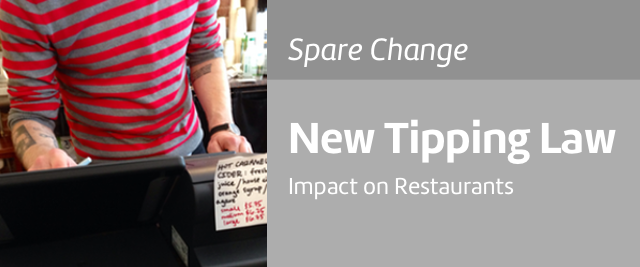In most American restaurants, it is common policy to apply an automatic gratuity of at least 18% to tables with six or more guests. Beginning this month, however, a new tax law from the IRS will require this automatic tipping practice to be considered part of a server's hourly pay instead of take-home pay at the end of a shift, potentially affecting not only servers, but owners and restaurant policies.
Impact on Servers' Wages
While this new tax law may not seem like a big deal to the average restaurant-goer, it could have an considerable impact on restaurant employees, who can no longer bank on receiving 18% or more as end of shift pay. If businesses do away with automatic tipping, who's to say if customers in a large party will continue to tip as before? One can almost guarantee they won't.
Documentation and Reporting
If a restaurant elects to keep automatic tipping in place, owners and servers will be required to change how they record and report automatic gratuity as part of the server's taxable wage, giving rise to different documentation and reporting practices to stay above board with the IRS.
Changing Policies?
We may even see policies and practices shift with automatic tipping under the spotlight. Perhaps restaurant owners will replace the service charge with alternate revenue streams for themselves and their servers. Perhaps servers will pool their tips, or come up with another way to ensure a customer's patronage. Whatever they choose, restaurant owners and staff are no strangers to bobbing and weaving. Isn't that relentless pluck what makes the service industry hum, after all?
Related Links
For more information about automatic tipping, take a look at some recent opinions in the industry:

